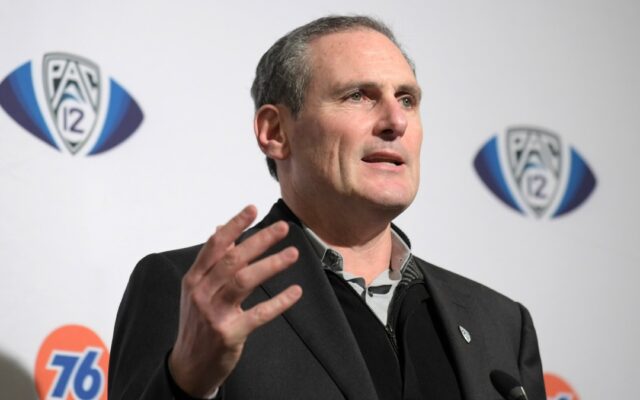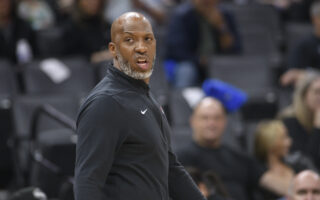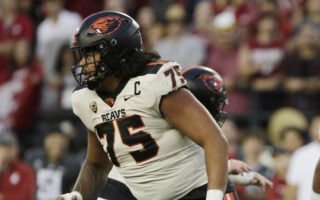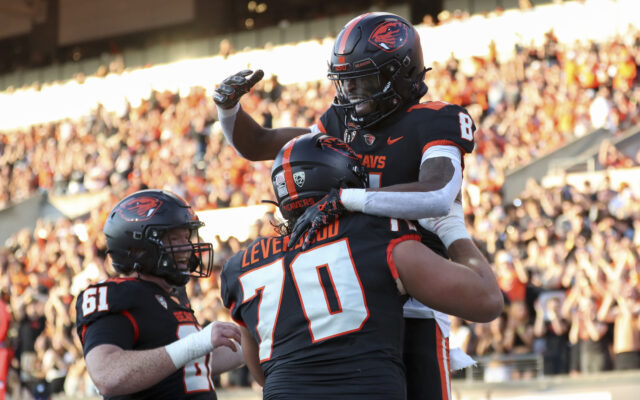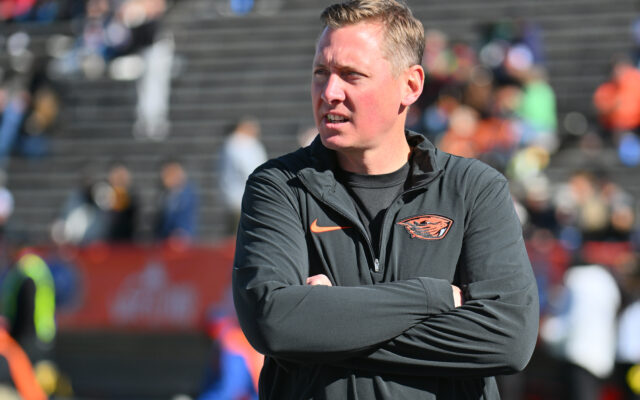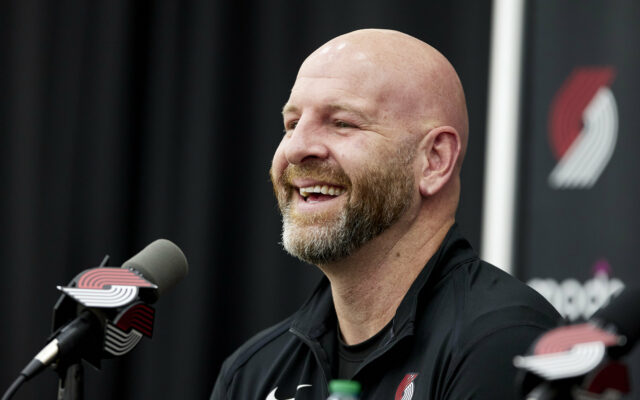It’s finally coming to an end.
Larry Scott’s tenure as commissioner of the Pac-12 Conference will come to an end this summer, one year before his contract was set to expire, as the conference announced Wednesday evening it is parting ways with its commissioner.
Michael Smith of the Sports Business Journal had the news first, followed by other media entities, and the conference itself issued a press release with the announcement shortly thereafter.
Scott will remain as commissioner through June 30, 2021, the conference announced, as the national search for the next commissioner begins immediately. The full press release of the Pac-12 Conference is below.
SAN FRANCISCO (Jan. 20, 2021) – The Pac-12 Conference announced today that following ongoing discussions between its governing executive committee, its presidents and Commissioner Larry Scott, it was mutually agreed that the Commissioner would not seek a new contract. The decision was made well in advance of next year’s contract expiration, in part, to allow a new commissioner to be in place to negotiate and maximize the Conference’s next important long-term media rights agreement.
The Conference and Scott decided it was time for new leadership after his 11-year tenure. Scott’s existing contract is scheduled to expire in June 2022 and it was agreed he will remain in the role until June 30, 2021 to assist in the transition.
The Pac-12 executive committee, including University of Oregon President Michael Schill as chair; Kirk H. Schulz, Washington State University president; and Ana Mari Cauce, president of the University of Washington, will immediately commence a national search for Scott’s replacement as commissioner.
“We appreciate Larry’s pioneering efforts in growing the conference by adding new competitive university programs and accelerating the Pac-12 to television network parity with the other conferences,” said Schill. “At one point, our television agreement was the most lucrative in the nation and the debut of the Pac-12 Network helped deliver our championship brand to US and global markets on traditional and digital platforms. That said, the intercollegiate athletics marketplace doesn’t remain static and now is a good time to bring in a new leader who will help us develop our go-forward strategy.”
Scott, whose current term expires in 2022, said this time is right for several reasons: “I was in pro sports for 20 years, I’ve now been in college athletics for more than 10 years, and now is a great time in my life to pursue other exciting opportunities. This moment, when college athletics are moving in a new direction and with the Conference soon commencing the next round of media negotiations, it seems the right time to make a change. It is important that the conference be able to put in place the person who will negotiate and carry out that next agreement. Based on the recent robust valuation and marketplace interest we’ve received from traditional and nontraditional media organizations, I am confident the conference is well-positioned for continued success. I appreciate the support of the Pac-12 member institutions and a very talented staff, with whom it has been my privilege to work.”
Commissioner Scott will leave a significant imprint on the Pac-12. It was during the 2010-11 academic year that Scott helped deliver changes that transformed the Conference into a modern 12-team league. In addition to expanding to 12 teams, member institutions agreed to equal revenue sharing for the first time in the Conference’s history, created two football divisions––the North Division and the South Division––and established a Football Championship Game for the first time. Scott also secured major media rights deals with ESPN and FOX that dramatically increased national exposure and revenue for each school, in addition to establishing Pac-12 Networks that guaranteed enhanced exposure across all sports.
Another area of continuity that both the Pac-12 and member institutions will prioritize in the search for Scott’s successor will be continuing positive graduation rates for the Conference’s student-athletes. President Schill cited the Conference’s improvements in graduation rates as measured by the NCAA’s Graduation Success Rate (GSR). With 90% of the NCAA Division I student-athletes now achieving graduation during the measured period, the Pac-12 experienced improvements across the Conference, with some member institutions and athletic programs achieving 100% graduation rates among student-athletes in specific sports programs.
The Pac-12 Conference has led or tied the nation in NCAA Championship in 54 of the last 60 years with the exceptions coming no lower than third. Under Commissioner Scott, the Conference also debuted its Pac-12 Impact program using the power of sport to promote a culture of diversity and inclusion. It also played a leadership role with its Student-Athlete Health and Well-Being Initiative which is doing groundbreaking research into injury prevention, brain trauma, and mental health. Other milestones of accomplishment between Commissioner Scott, the Pac-12 Conference and the member institutions can be found below and on the
Pac-12 website.
For media queries about the Pac-12 and today’s announcement, contact: Andrew Walker, vice president, public affairs & head of communications at (415) 676-1341, [email protected]
About the Pac-12 Conference
The Pac-12 Conference is the “Conference of Champions,” leading the nation in NCAA Championships in 54 of the last 60 years, with 529 NCAA team titles overall. The Conference comprises 12 leading U.S. universities – the University of Arizona, Arizona State University, the University of California, Berkeley, the University of California at Los Angeles (UCLA), the University of Colorado, the University of Oregon, Oregon State University, Stanford University, the University of Southern California, the University of Utah, the University of Washington and Washington State University. For more information on the Conference’s programs, member institutions, and Commissioner Larry Scott, go to
Pac-12.com/conference.
